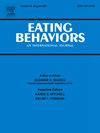跨性别和性别多样化成人饮食病理症状量表(EPSI)的社区规范
IF 2.4
3区 医学
Q2 PSYCHIATRY
引用次数: 0
摘要
跨性别和性别多样化(TGD)个体患饮食失调的风险更高,但现有的许多饮食失调措施的社区规范主要来自顺性别人群。本研究旨在建立TGD成人饮食病理症状量表(EPSI)的社区规范(Forbush et al., 2013)。样本包括1206名性别多样化的人,599名变性男性和293名变性女性,这些人来自PRIDE研究,这是一项针对美国性和性别少数群体的全国性纵向队列研究。我们报告了TGD人群中8种EPSI量表的平均得分、标准差、中位数、四分位数范围和百分位数排名。跨性别女性在认知约束、过度运动和对肥胖的消极态度量表上的得分明显高于跨性别男性和性别多样化人群。相反,跨性别男性在肌肉锻炼量表上的得分明显高于跨性别女性和性别多样化的人。这些发现提示了TGD个体饮食病理症状的不同模式,并强调了临床医生在评估饮食失调症状时考虑性别认同的必要性。本文章由计算机程序翻译,如有差异,请以英文原文为准。
Community norms of the Eating Pathology Symptoms Inventory (EPSI) in transgender and gender-diverse adults
Transgender and gender-diverse (TGD) individuals are at a higher risk for eating disorders, yet existing community norms for many eating disorder measures predominantly derive from cisgender populations. This study aimed to establish community norms for the Eating Pathology Symptoms Inventory (EPSI) among TGD adults (Forbush et al., 2013). The sample included 1206 gender-diverse people, 599 transgender men, and 293 transgender women from The PRIDE Study, a national longitudinal cohort of sexual and gender minority adults in the United States. We report mean scores, standard deviations, medians, interquartile ranges, and percentile ranks for the eight EPSI scales within TGD populations. Transgender women exhibited significantly higher scores on the Cognitive Restraint, Excessive Exercise, and Negative Attitudes Toward Obesity scales compared to transgender men and gender-diverse people. Conversely, transgender men showed significantly higher scores on the Muscle Building scale relative to transgender women and gender-diverse people. These findings suggest distinct patterns of eating pathology symptoms among TGD individuals and emphasize the need for clinicians to consider gender identity when assessing eating disorder symptoms.
求助全文
通过发布文献求助,成功后即可免费获取论文全文。
去求助
来源期刊

Eating behaviors
Multiple-
CiteScore
4.20
自引率
3.60%
发文量
65
审稿时长
60 days
期刊介绍:
Eating Behaviors is an international peer-reviewed scientific journal publishing human research on the etiology, prevention, and treatment of obesity, binge eating, and eating disorders in adults and children. Studies related to the promotion of healthy eating patterns to treat or prevent medical conditions (e.g., hypertension, diabetes mellitus, cancer) are also acceptable. Two types of manuscripts are encouraged: (1) Descriptive studies establishing functional relationships between eating behaviors and social, cognitive, environmental, attitudinal, emotional or biochemical factors; (2) Clinical outcome research evaluating the efficacy of prevention or treatment protocols.
 求助内容:
求助内容: 应助结果提醒方式:
应助结果提醒方式:


